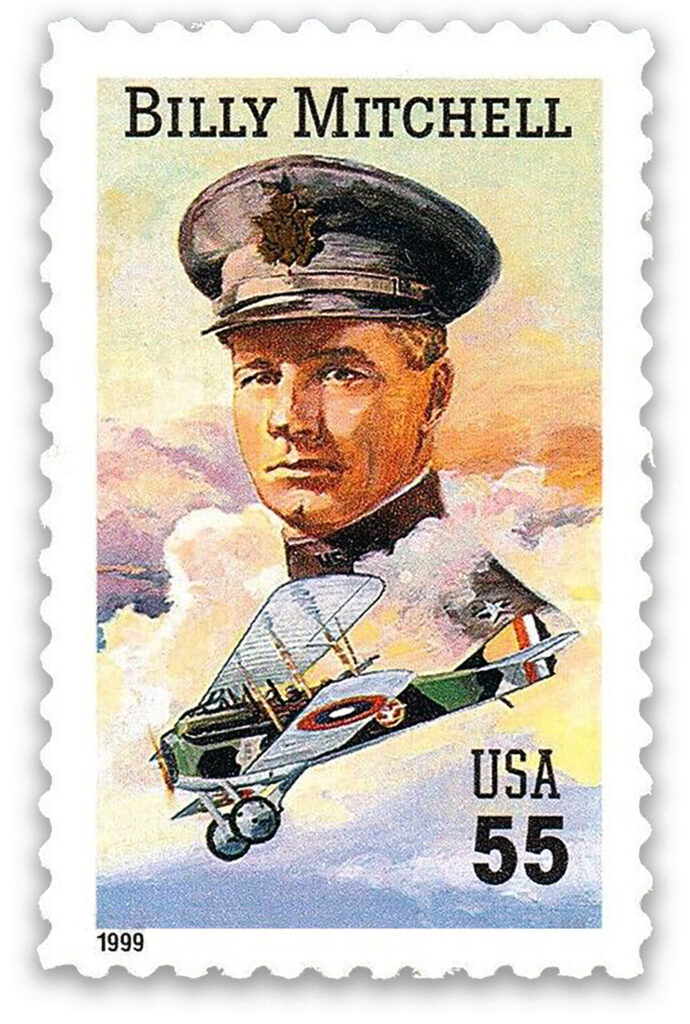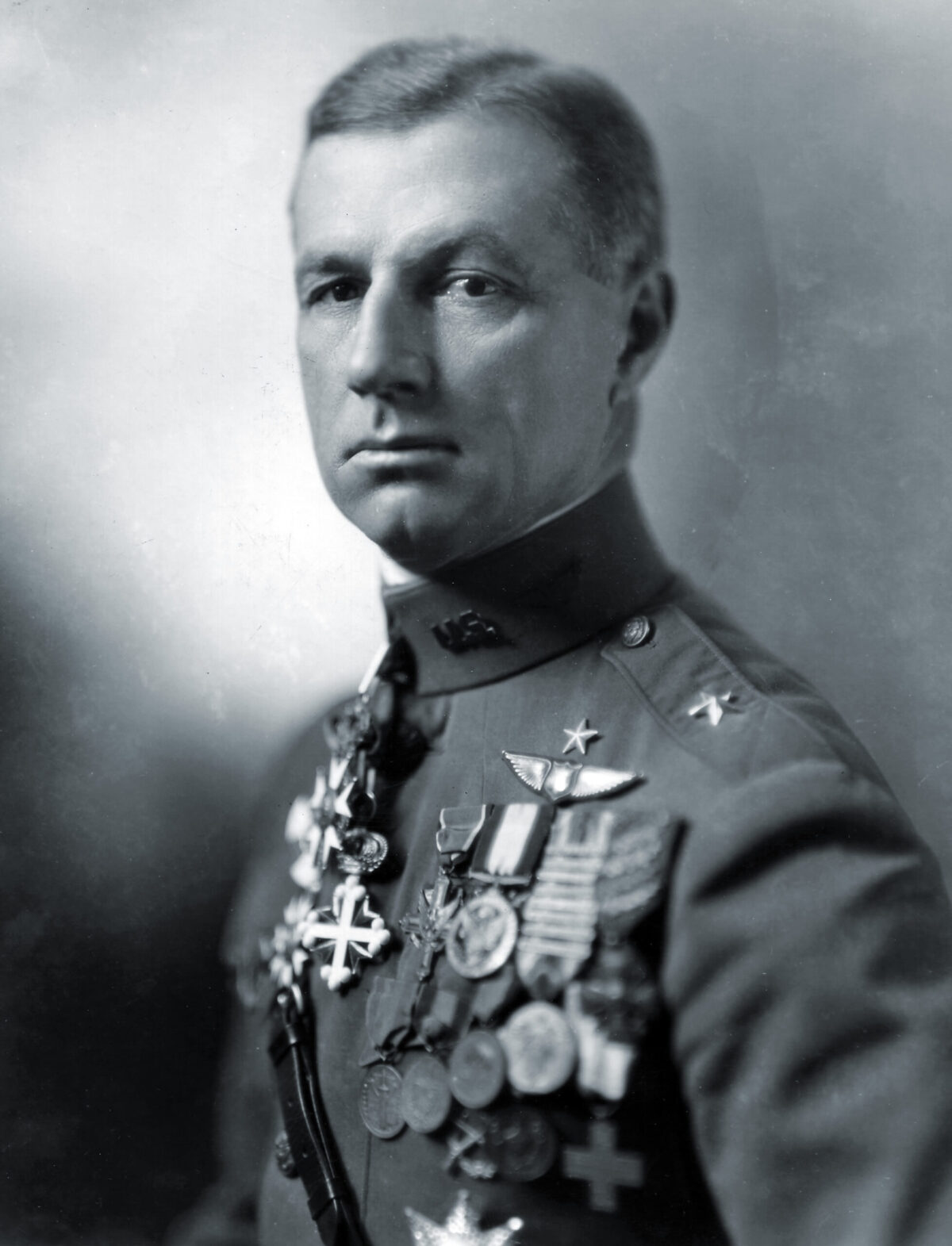Memories of Billy Mitchell seem to be growing dim just at a time when his spirit is needed more than ever. The reason, of course, is the relative lack of film coverage on this great leader in a time when most of the public is so readily reached through television. Precious little film footage remains of a man who did much for aviation and the modern U.S. Air Force. For the most part, we see him striding around the bombing planes getting ready to attack the battleships, and we see him standing proudly outside the shabby temporary buildings where his brilliant military career would end in a court-martial. Sadly, most memories of Mitchell derive from the Gary Cooper film on that done-deal trial.
Nor have his biographers served him very well. Those who reached a large audience were almost simplistic in their approach; the few scholarly works were read for the most part only by a limited audience of academics. While all the biographers agreed that Mitchell had many great qualities, no one emphasized that two qualities stood out. Of these two, one is by far the most vitally important today.
The first of Mitchell’s outstanding qualities, and the less important one in today’s environment, was his ability to intelligently forecast the future. His great service to aviation was in visualizing what aviation could do when it had the means, even though he had to base his estimates on contemporary equipment that was lacking in capability. In other words, while he could not have designed the B-29 or even imagined that it would be produced by the thousands, he knew that aircraft of some nature would be developed that would achieve the effectiveness of the B-29 and thus be able to dictate the outcome of a war.
Today, that ability to look into the future would be valuable, but not as essential as his second great quality—courage. He had the courage to speak out in adversity, to damn the system when it needed damning and to be ready to sacrifice his career for his beliefs.

Time, society and political pressure have moved us away from having spokesmen like Mitchell. Political correctness is dominating the military mindset now in a way that would have been considered impossible even 10 years ago. Admirals and generals must be absolutely politically correct or their careers will be terminated by the shrill cries of the press. Men who have served their country in three wars and endured hardships and dangers can be summarily dismissed—or, sadly, driven to suicide—if they even accidentally transgress some artificial boundary of the rabidly righteous. The result is a paralysis of will and a continual anxiety that some unintended comment or reflexive gesture will offend the culture vigilantes who circle like wolves around every press conference and every public statement.
Mitchell would not have put up with it; he would have said that it is nonsense to throw young men and women in the same foxhole, the same bunk area, the same alert shack, and not expect to have romantic entanglements. He would have exercised his common sense, told it like everyone knows it is—and accepted the inevitable witch hunt that would follow.
We need not another Billy Mitchell, but a host of Billy Mitchells in all the services to turn around the absolutely insane situation into which the armed services have been thrust and which will destroy them unless remedied.





